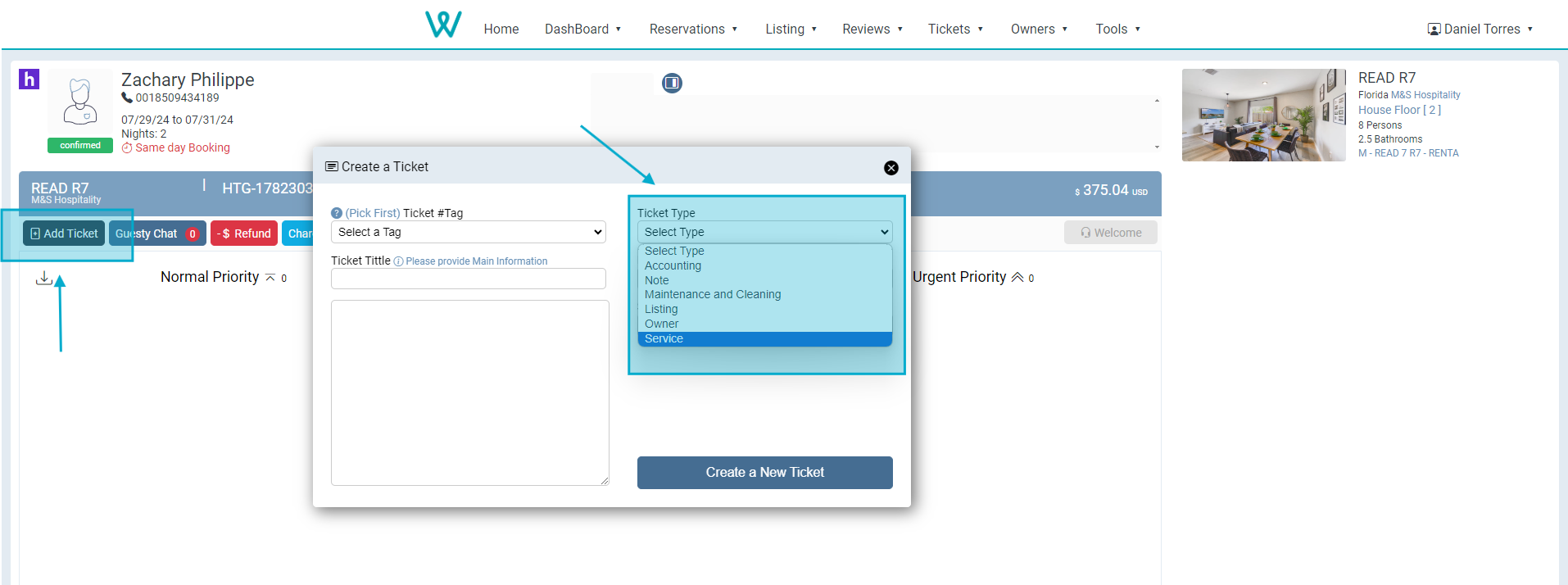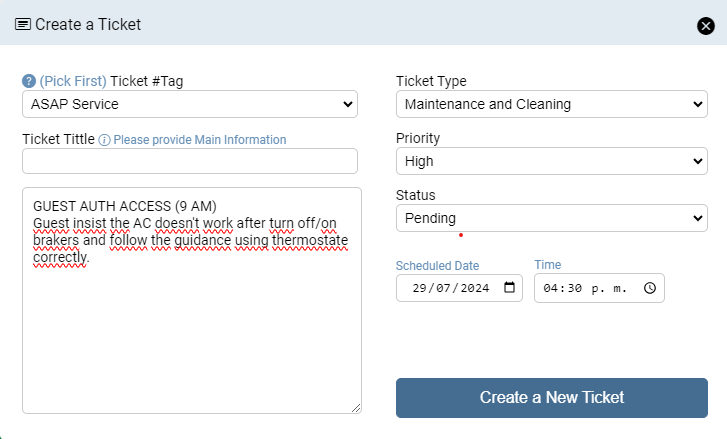Ticket Types
Discovering how to use the types of tickets in the CRM correctly.
Last Update: July 2024
Objective
- Understand the different types of tickets and the situations in which they should be used.
Making a Ticket
Tickets are associated with each reservation, which means that the event where tickets are presented or can be created is within a reservation. Understand that a reservation can have different statuses, but regardless of this status, a front desk agent can create a ticket by simply clicking the black button labeled "Add Ticket."
This will display the form and dialog to create the ticket.
Ticket Types
There are 6 types of tickets that can be created in the CRM, each with special characteristics and specific uses. Tickets can be created for Accounting, Notes, Services, Maintenance and Cleaning, Owner, and Listing.
Accounting Ticket
These are tickets related to accounting, which need to be taken into account by accounting to perform an action that only they can do, especially tickets related to refunds or additional charges. They are also related to events that may result in the shortening of the reservation or its cancellation, which implies some kind of refund to the guest.
When to use:
- An accounting ticket will be created automatically when the Refund tool is used in the action bar of the guest reservation window.
- An accounting ticket will be created automatically when the Charge tool is used in the action bar of the guest reservation window.
Only the front desk manager or the lead agents with permission in the CRM can access these tools.
Note Ticket
This type of ticket is characterized by being purely informational; it does not involve any actions that need to be executed in the future. For this reason, when you select the Note type in the CRM, the dialog that requires you to enter a date and time for task scheduling is not displayed. Use this type of ticket for important information that we need to know about the guest.
Service Ticket
These tickets are very special; they involve an action that needs to be executed by a person, department, or procedure at a specific time on a specific date and do not involve the cleaning and maintenance department.
These tickets are generally accompanied by a tag that clearly identifies the service being referenced.
Maintenance and Cleaning Ticket
These tickets are exclusively for reporting maintenance or cleaning issues and are designed to be addressed based on their urgency. Tickets are directly synchronized with Breezeway, the program used by maintenance and cleaning teams to coordinate tasks for their teams. It is required to have a date by which the guest needs to be assisted; this date should be the deadline or maximum date by which the guest should be attended to.
It is important to note that before creating a ticket requesting assistance, you must follow the service protocol, trying to resolve more trivial issues directly where possible, such as the correct use of the TV or appliances, resetting the breakers to ensure the AC works properly, and other activities that can solve common problems without necessarily requiring maintenance intervention until those resources have been exhausted.
Always confirm with the guest, after exhausting basic attempts at assistance, if they authorize us to access the unit while they are in it, confirming the time when we can do so.
Listing ticket
Whenever a guest reports any misinformation related to the information they saw in the listing and what they found in the unit, a Listing ticket should be created.
For example, if the guest says that the listing stated the apartment was on the 20th floor but it is actually on the 18th floor, or situations where an amenity was included in the listing but is not present at the time of the reservation.



